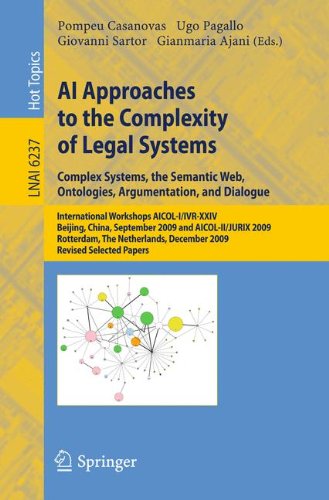

Most ebook files are in PDF format, so you can easily read them using various software such as Foxit Reader or directly on the Google Chrome browser.
Some ebook files are released by publishers in other formats such as .awz, .mobi, .epub, .fb2, etc. You may need to install specific software to read these formats on mobile/PC, such as Calibre.
Please read the tutorial at this link: https://ebookbell.com/faq
We offer FREE conversion to the popular formats you request; however, this may take some time. Therefore, right after payment, please email us, and we will try to provide the service as quickly as possible.
For some exceptional file formats or broken links (if any), please refrain from opening any disputes. Instead, email us first, and we will try to assist within a maximum of 6 hours.
EbookBell Team

0.0
0 reviewsThe inspiring idea of this workshop series, Artificial Intelligence Approaches to the Complexity of Legal Systems (AICOL), is to develop models of legal knowledge, concerning
organization, structure and content, in order to promote mutual understanding and communication between different systems and cultures.
Complexity and complex systems describe recent developments in AI and law, legal theory, argumentation, the Semantic Web, and multi-agent systems. The aim of the AICOL workshops is thus to offer effective support for the exchange of knowledge and methodological approaches between scholars from different scientific fields, by highlighting their similarities and differences. The comparison of multiple formal approaches to the law (such as logical models, cognitive theories, argumentation frameworks, graph theory, game theory), as well as opposite perspectives like internal and the external viewpoints, this volume stresses possible convergences, as, for instance, are possible in the realms of conceptual structures, argumentation schemes, emergent behaviors, learning evolution, adaptation, and simulation.
This volume assembles 15 thoroughly refereed and revised papers, selected from two
workshops organized at the XXIV World Congress of Philosophy of Law and Social Philosophy (IVR, Beijing, China, September 15-20, 2009) and at JURIX-09 (December 16-19, 2009, Rotterdam). The papers are organized in topical sections on language and complex systems in law, ontologies and the representation of legal knowledge, argumentation and logics, as well as dialogue and legal multimedia.